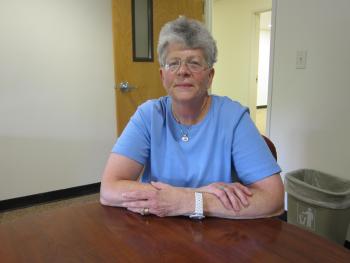Patricia Gerrior

Voices from the Science Centers
Voices from the Science Centers is an oral history initiative dedicated to documenting the institutional knowledge of fisheries scientists and administrators in the labs of NOAA’s Fisheries Science Centers.
Patricia Gerrior was born in Cambridge, Massachusetts and grew up in Weymouth, Massachusetts where she would spend time on the water with her father which led to her interest in marine science. She studied Biology at Colby College in Waterville, Maine and began her 40 year career during her junior year in college with the Bureau of Commercial Fisheries which became NOAA National Marine Fisheries Service.
Interview contains discussions of: Bureau of Commercial Fisheries, plankton, board agent, New Bedford, fish auction, strike, haddock, cod, yellowtail flounder, underutilized species, mackerel, observer program, right whales, aerial surveys, Marine Mammal Protection Act, climate change.
Patricia Gerrior describes her 40 year career with the Bureau of Commercial Fisheries, now NOAA NMFS. During her career, she would work as a librarian at the BCF library; as a board agent in New Bedford; worked with promoting underutilized species; managed the observer program; and was the stranding coordinator. At the end of her career, she oversaw the aerial surveys and outreach to commercial shipping vessels in order to protect right whales in the shipping lanes from ship strikes.
Please Note: The oral histories in this collection are protected by copyright and have been created for educational, research and personal use as described by the Fair Use Doctrine in the U.S. Copyright law. Please reach out Voices@noaa.gov to let us know how these interviews are being used in your research, project, exhibit, etc. The Voices staff can help provide other useful resources related to your inquiry.
The NOAA mission is to understand and predict changes in climate, weather, oceans, and coasts, to share that knowledge and information with others, and to conserve and manage coastal and marine ecosystems and resources. The Voices Oral History Archives offers public access to a wide range of accounts, including historical materials that are products of their particular times, and may contain offensive language or negative stereotypes.
Voices Oral History Archives does not verify the accuracy of materials submitted to us. The opinions expressed in the interviews are those of the interviewee only. The interviews here have been made available to the public only after the interviewer has confirmed that they have obtained consent.
